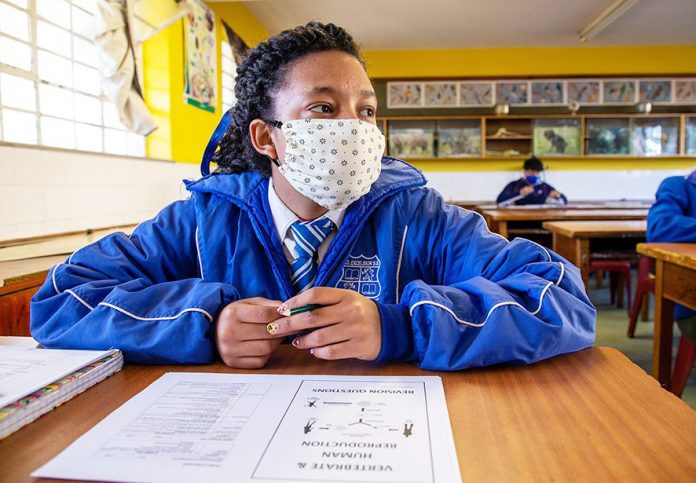The South African education system is big (13 million pupils), unequal and socially graded. Though improving, the achievement outcomes are still low, fragile and susceptible to shocks.
The Covid-19 pandemic has dealt the education system a major blow, especially for poor and vulnerable pupils.
In March 2020, South Africa, like most of the world, went into total lockdown, including school closures. The education system was unprepared for this.
[membership level=”1″]Schools, teachers and administrators were forced to build emergency remote-learning systems almost immediately. This threw the spotlight on access to digital devices, connectivity, having a quiet place to work in, and the problem of stubborn inequality.
Better resourced homes and schools were able to move to digital forms of learning and proceed with curriculum coverage. For the majority of pupils, despite the best intentions, there was very little structured learning.
From June 2020, schools were reopened. Most schools followed a rotational timetable where pupils attended school every second or third day.
Education scholars estimate that there was a loss of 60% of school contact time in 2020 and 50% last year. There were higher losses of school contact time in the less-resourced schools.
It’s uncertain exactly how much learning (knowledge and skills) has been lost and how wide the gaps may be for disadvantaged children. The global literature reports that:
- pupils from poorer countries and households experienced higher learning losses;
- earlier grades were more susceptible to learning losses than secondary pupils;
- learning losses were higher for mathematics than for reading; and
- girls were more affected.
For South Africa, we estimated that the loss of school learning time in 2020 moved the education system backwards to the achievement levels of 2015.
The learning loss for pupils from less resourced schools was 4.2%, higher than pupils in more affluent schools at 3.4%.
Covid-19 worsened already wide achievement gaps.
Studies measuring reading proficiencies in under resourced South African primary schools in 2020 reported that Grade 2 and Grade 4 pupils lost between 60% to 80% of a year of learning when compared to their pre-pandemic peers.
South African researchers compared pre-Covid Grade 3 reading scores to Grade 4 reading scores during the pandemic.
They found that Grade 4 home language pupils were more than 1.25 years behind and English first additional language pupils were half a year
behind.
The World Bank cautions against underestimating the extent of the learning losses, saying that “the global education crisis is worse than we thought”.
The consequences of lost contact with the classroom will be felt for years.
Last month, South Africa’s Department of Basic Education gazetted that all pupils would fully return to school and introduced measures to catch up on teaching and learning that was lost during school closures.
We don’t have a playbook of how learning recovery should happen. Drawing on past experiences and experiences in other countries, South Africa should consider implementing the following four components for education and learning recovery:
- consolidation and trimming the content of the curriculum;
- increasing the efficiency of instruction;
- supporting out-of-school education programmes; and
- nurturing the well-being of all actors involved in education.
While it’s unclear whether the schooling system can recover the two years of disrupted schooling and learning time, the education system should use this moment to reduce content in the National Curriculum Statement.
Countries like the Philippines, Guyana and Tanzania have revised the primary school curricula to focus on practical learning and literacy and numeracy skills.
- Vijay Reddy is distinguished research specialist, Human Sciences Research Council
To read more political news and views, click here.
Follow @SundayWorldZA on Twitter and @sundayworldza on Instagram, or like our Facebook Page, Sunday World, by clicking here for the latest breaking news in South Africa. To Subscribe to Sunday World, click here.
[/membership] [pmpro_signup submit_button=”Register” level=”1″ login=”1″ redirect=”referrer” short=”false” title=”Thank you for choosing Sunday World, to read this article for free, please register below at no cost.” short=”true” custom_fields=”true”]


